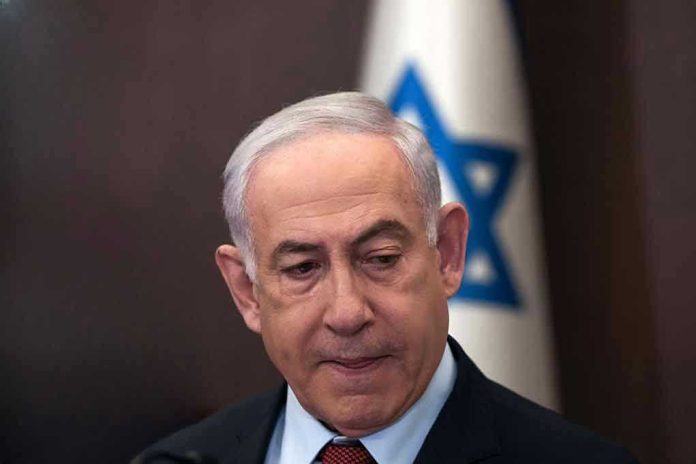
In a dramatic twist, the Trump administration’s frustration with Israeli Prime Minister Benjamin Netanyahu reached a boiling point as insiders likened the Israeli leader’s antics to that of “a child who just won’t behave.”
At a Glance
- The Trump administration’s initial strong support for Netanyahu was marred by disagreements over Israel’s annexation plans.
- Jared Kushner played a pivotal role in managing tensions and maintaining the peace process narrative.
- Netanyahu’s unilateral interpretation of Trump’s peace plan led to significant fallout.
- Trump’s patience with Netanyahu was tested, impacting broader regional diplomacy efforts.
Strains in a Once Promising Alliance
The Trump administration initially promised unwavering support for Israel, signaling a new era in US-Israel relations. Netanyahu, embracing Trump’s pro-Israel stance, saw an opportunity to further Israel’s territorial ambitions, particularly in the West Bank. However, the relationship quickly soured when Netanyahu misinterpreted Trump’s Middle East peace plan as a green light for annexation, sparking outrage within the Trump camp.
Jared Kushner, Trump’s son-in-law and chief architect of the peace plan, stepped in, reiterating that unilateral annexation was not part of the agreed strategy. The misalignment over annexation plans exposed the fragile nature of the alliance, highlighting that Trump’s support came with conditions—conditions that Netanyahu, in his eagerness, was quick to overlook.
Netanyahu’s Overreach
As Netanyahu pushed the envelope on annexation, the Trump administration found itself scrambling to maintain the delicate balance of regional diplomacy. Trump’s patience wore thin, with reports suggesting that the President’s inner circle privately expressed their frustration with Netanyahu’s unpredictable behavior. This internal discord became public when Trump officials described Netanyahu as behaving like “a madman” after his actions seemed to undermine US efforts in the Middle East, including the Abraham Accords.
The fallout was not just a diplomatic faux pas; it had profound implications for US credibility in the region and highlighted the complexities of maintaining relationships where national interests may diverge. The incident demonstrated that even the strongest alliances could fracture when one party oversteps perceived boundaries.
Implications for Future Diplomacy
The strained relationship between Trump and Netanyahu serves as a cautionary tale in international diplomacy. It underscores the importance of clear communication and mutual respect for national interests. The episode illustrated that US support, while robust, was not unconditional and future administrations would be wise to heed this lesson, ensuring that support for allies aligns with broader strategic goals.
In Israel, Netanyahu’s handling of the situation became a contentious issue, influencing domestic politics and affecting his standing among right-wing voters. His actions not only strained relations with the US but also risked destabilizing ongoing regional normalization efforts.




